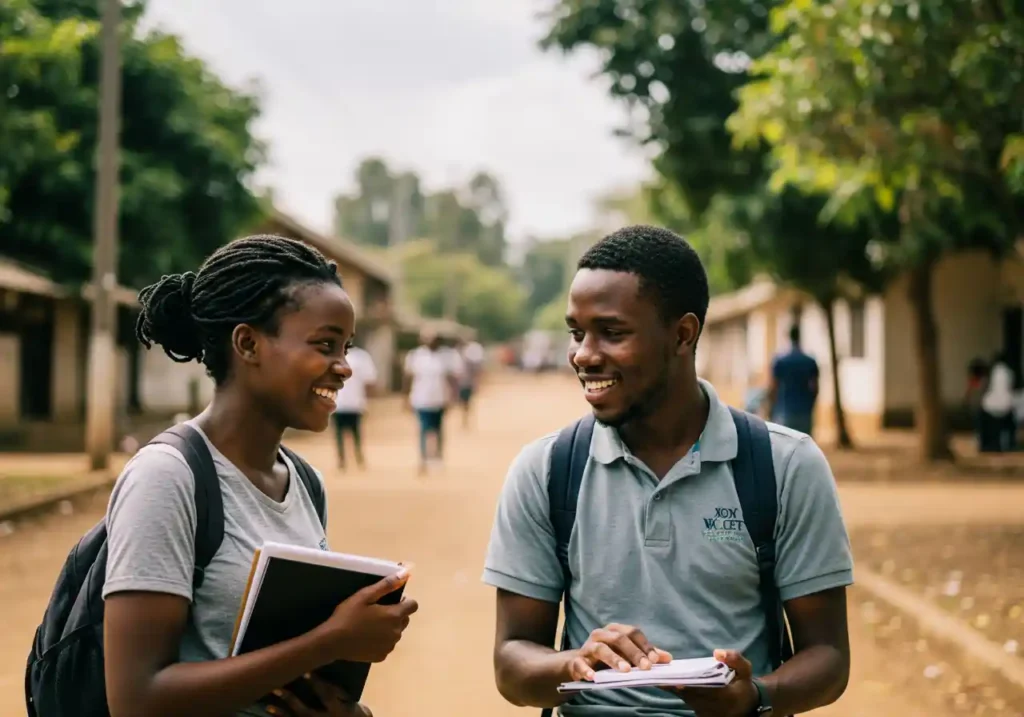Hey fam! You’ve probably seen someone close to you—a friend, roommate, or sibling—acting a bit off lately. Maybe they’re always “just tired” or disappearing when you plan to hang out.
Deep down, you might suspect drugs are part of the picture, but they’re not ready to admit it. At Macvey Rehab Centre in Juja, Thika Road we get how tough it is to watch someone you care about struggle and deny they need help.
This blog is for you—the ones who want to be there, not judge, but help your friends take that first step toward recovery. Let’s talk through a story, some real talk, and how you can make a difference.
Why They Might Not Admit There’s a Problem
Campus life can be a whirlwind—late-night study sessions, parties, and the pressure to fit in. Sometimes, what starts as “just trying something” can slip into something more serious.
If your friend brushes off their drug use, it’s not because they don’t care. Addiction is sneaky—it tricks people into thinking they’ve got it under control. Here’s why they might be stuck:
- Denial Feels Safer: Admitting there’s a problem means facing change, and that’s scary. They might think, “It’s just a phase, I can stop anytime.”
- Stigma Hits Hard: In the campus scene, nobody wants to be “that person” who needs help. Fear of gossip or judgment can keep them silent.
- Stress Is a Trigger: With Nairobi’s fast pace and campus pressures—exams, fees, social life—drugs can feel like an escape, not a problem.
Spotting the Signs: Is It Becoming an Addiction
- Mood Swings That Don’t Add Up: Is your friend or loved one suddenly irritable, anxious, or super withdrawn? Maybe they’re not themselves after using substances, or their emotions seem like a rollercoaster. This could be a red flag.
- Dropping the Ball on Responsibilities: Skipping classes, ghosting group projects, or neglecting personal hygiene (like forgetting that signature campus drip) can signal that drugs are taking priority over daily life.
- Chasing the Next High: If someone’s constantly talking about getting high, planning their day around substances, or needing more to feel the same buzz, that’s a sign of dependency creeping in.
- Hiding or Lying: Are they secretive about where they’re going or who they’re with? Maybe they’re dodging questions about their habits. Addiction often comes with a side of secrecy.
- Physical Clues: Look out for changes like bloodshot eyes, unexplained weight loss, or constant fatigue. These can show up with frequent use of substances like marijuana, alcohol, or harder drugs.
Noticing these early signs isn’t about playing detective—it’s about caring enough to see when someone’s struggling. In Kenya, where campus life is tight-knit, you might be the first to spot these changes in a friend or roommate.
But here’s the truth: acknowledging the struggle is the first step to freedom, and you can help them get there.
- Have a Chill, Honest Chat: Pick a low-key moment—like grabbing some nyama choma or chilling at Thika Road Mall—and share what you’ve noticed. Try: “I miss the old you, and I’m worried. Can we talk about what’s been going on?” Keep it real, not preachy.
- Share a Story, Not a Lecture: Tell them about someone like a known celeb who’s been open about recovery (like Kenyan artist Jaguar talking about mental health). Stories stick better than stats.
- Make Help Feel Accessible: Mention Macvey Rehab Centre in Juja, Thika Road casually: “There’s this place in Juja that’s super chill—they just talk to you, no pressure. Wanna check it out with me?” Offer to go together for moral support.
- Celebrate Their Courage: If they open up even a little, hype them up: “Yo, that took guts to share. I’m proud of you.” Small affirmations build trust.
- Be Patient but Firm: If they push back, don’t force it. Say, “I’m here whenever you’re ready,” but also set boundaries: “I love you, but I can’t keep lending you cash if it’s going to this.”
How Juja Can Lead the Way to Addiction Recovery
Juja’s not just a place for epic parties and late-night group work—it’s a community where we lift each other up. NACADA’s 2022 report says 19.1% of Nairobi’s youth use substances, and campus students are right in that mix. But we’ve got heart and hustle. By being there for our people, we’re not just helping one person—we’re changing the vibe for all of us.
At Macvey Rehab Centre, we’re here to make alcohol and drug substance treatment real. Our Juja rehab center offers free initial consultations, student-friendly outpatient programs, and a 24/7 helpline 0719 201 548.
We accept NHIF, so money’s not a barrier. Whether it’s a quick chat or a full-on recovery plan, we’re here with no judgment, just hope.
Let’s Do This Together
You’re not alone in worrying about your friend, sibling, or partner. Every step you take—starting that convo, sharing this blog, or walking them to our center—matters. Macvey Rehab’s got a big heart, and together, we can help our loved ones see they’re stronger than their struggles. So, take a deep breath, reach out, and let’s show them they’re worth fighting for.
Worried about someone? Call us at 0719 201 548 or swing by Macvey Rehab Centre in Juja, Thika Road. We’re here to help, one step at a time.

